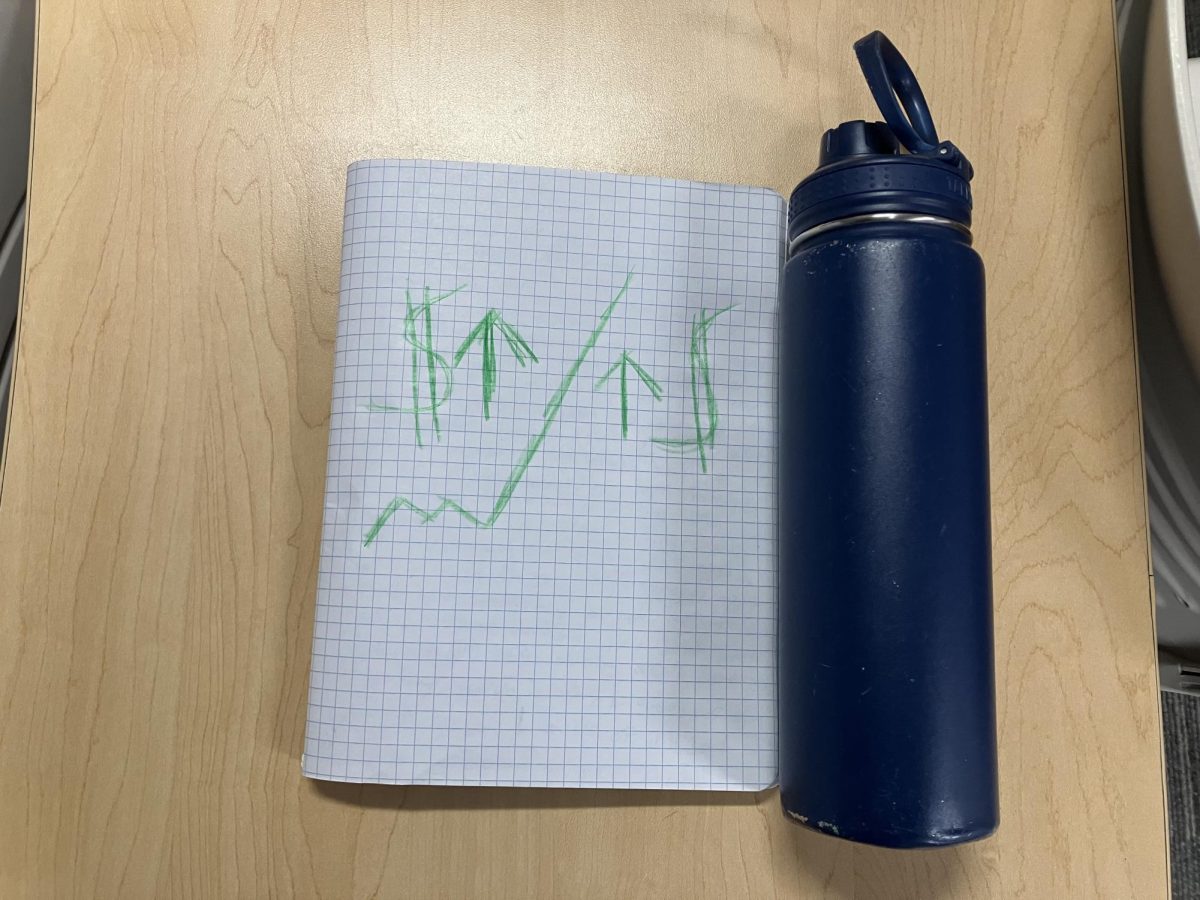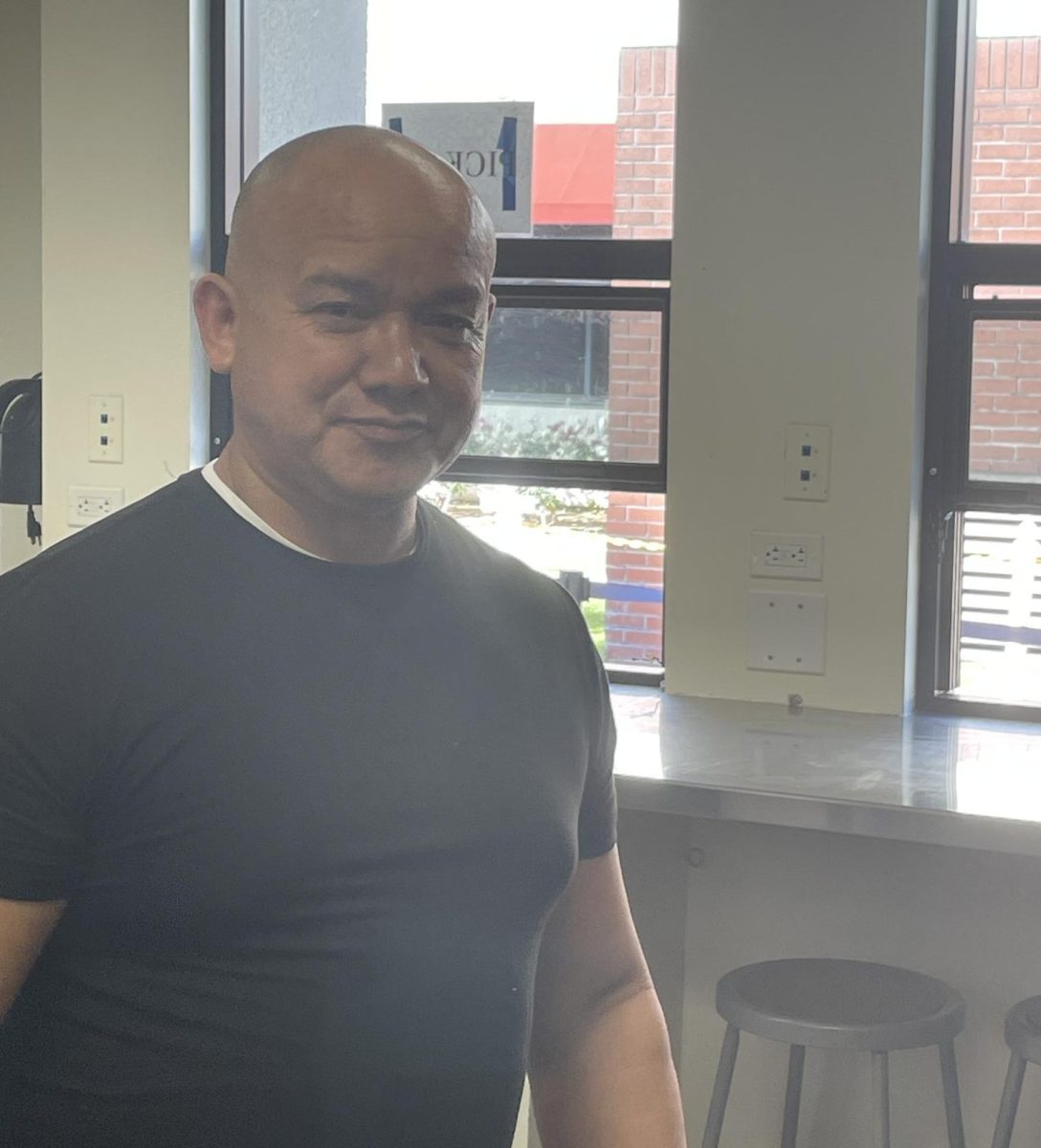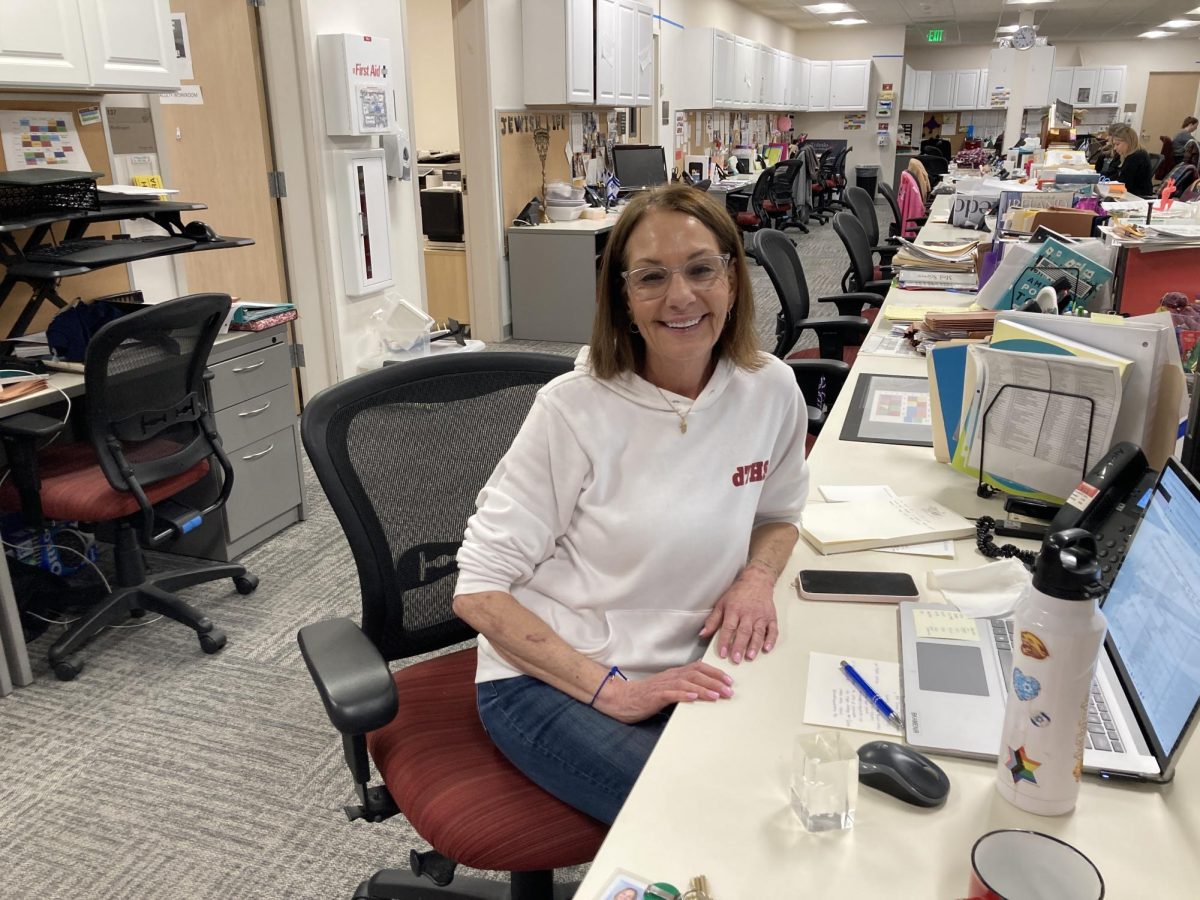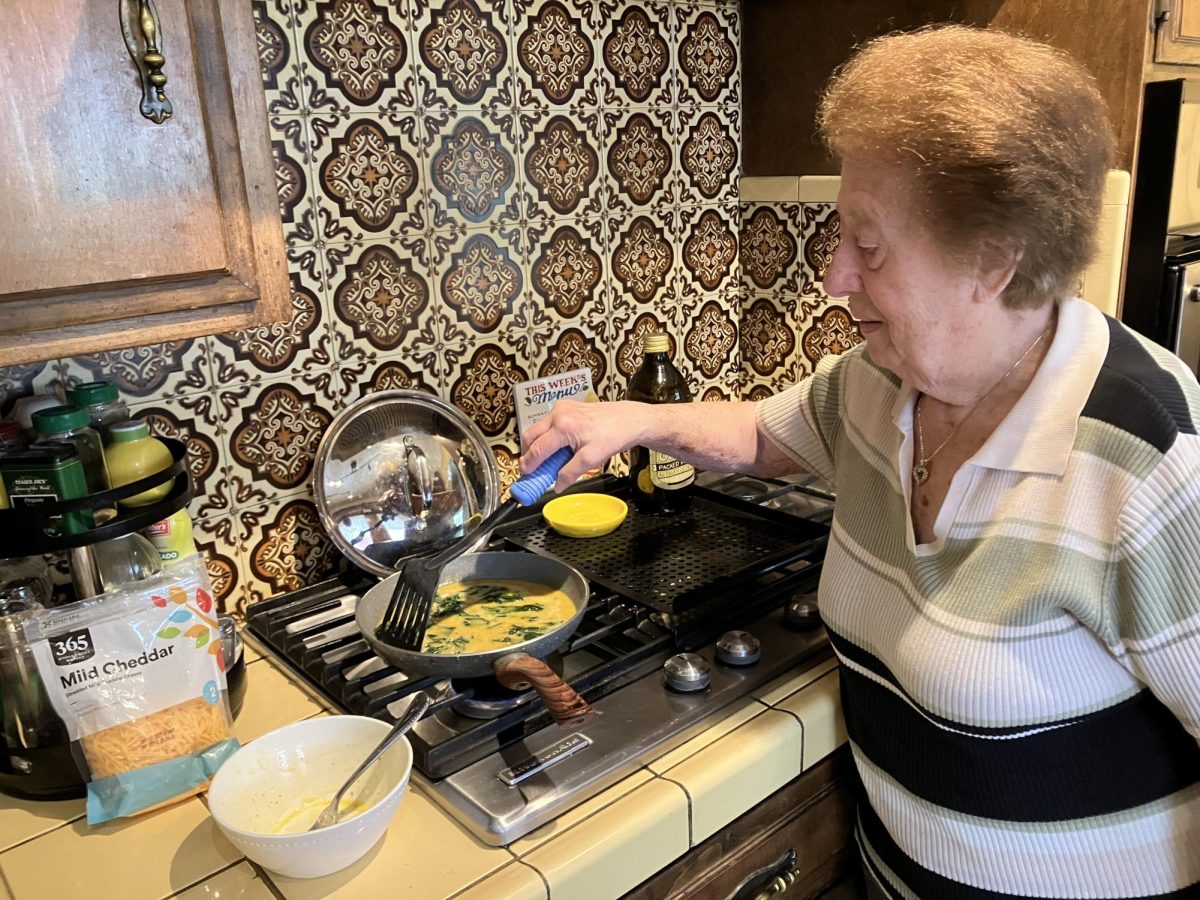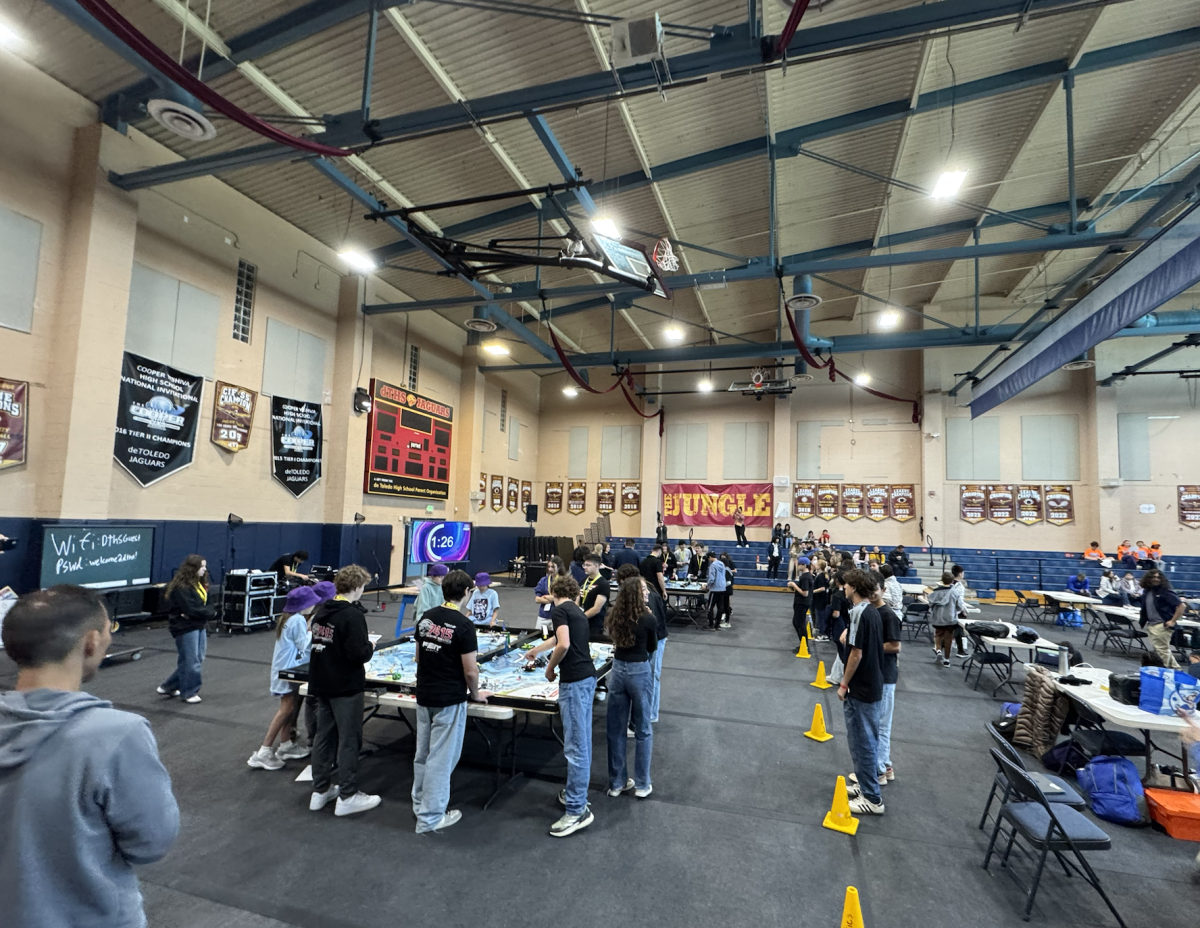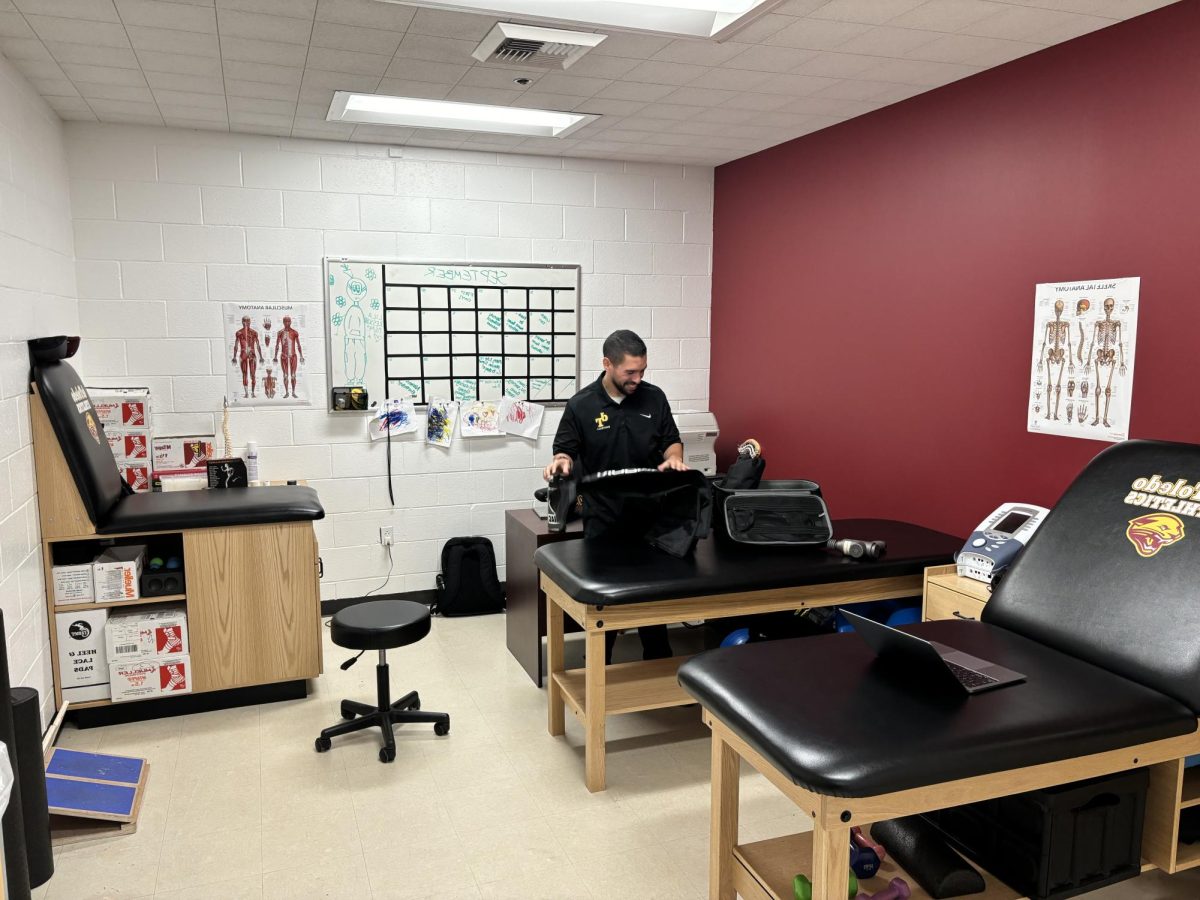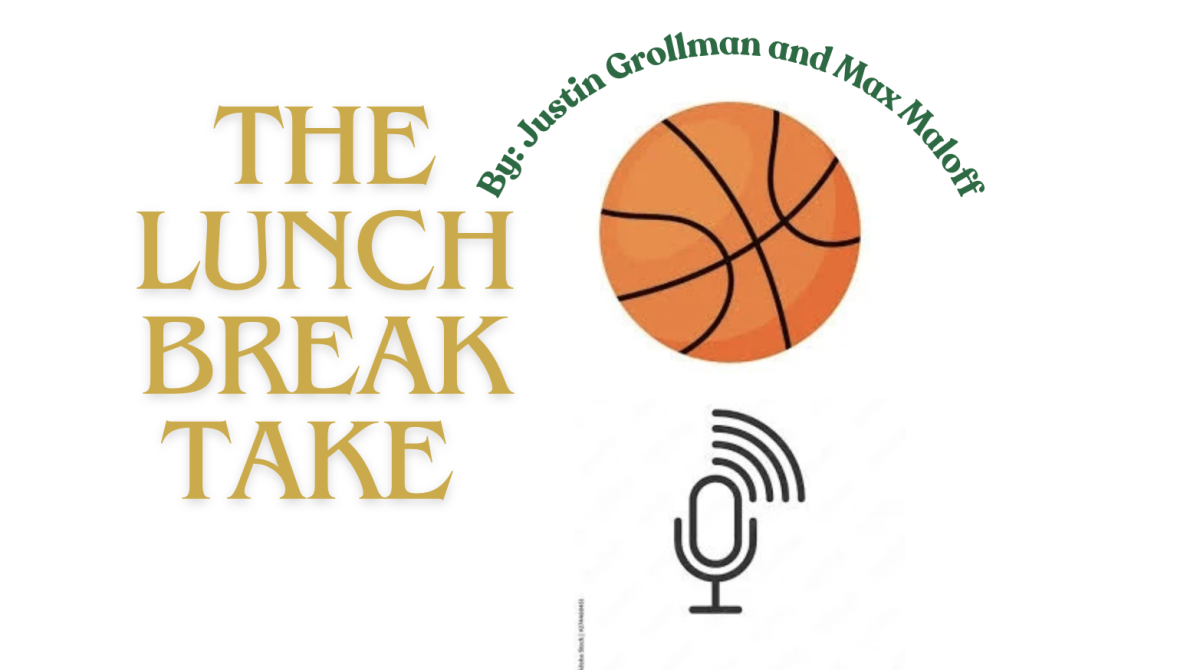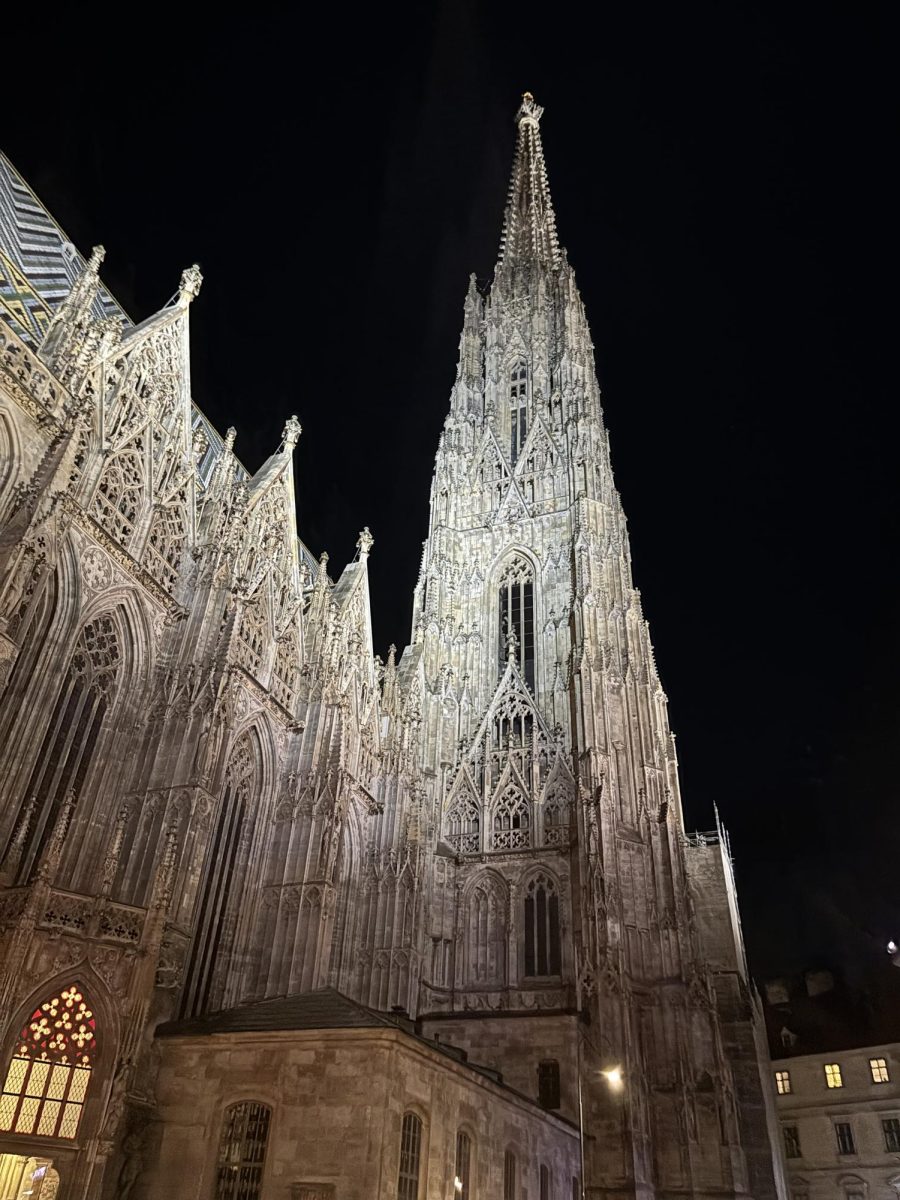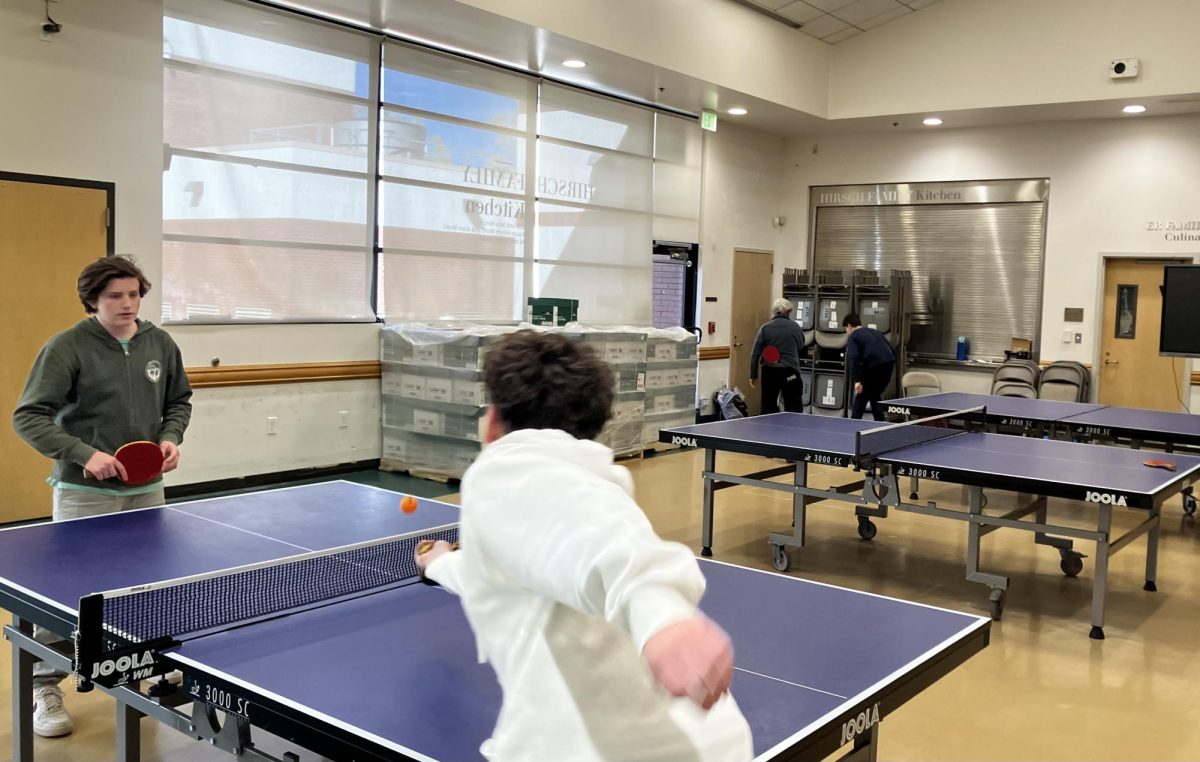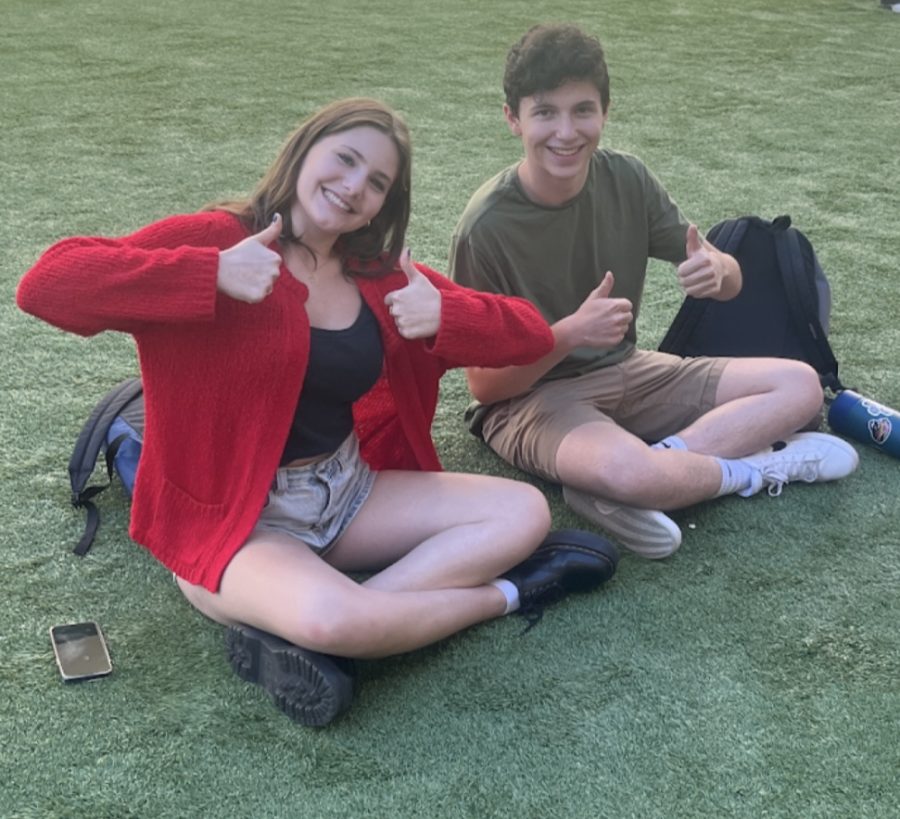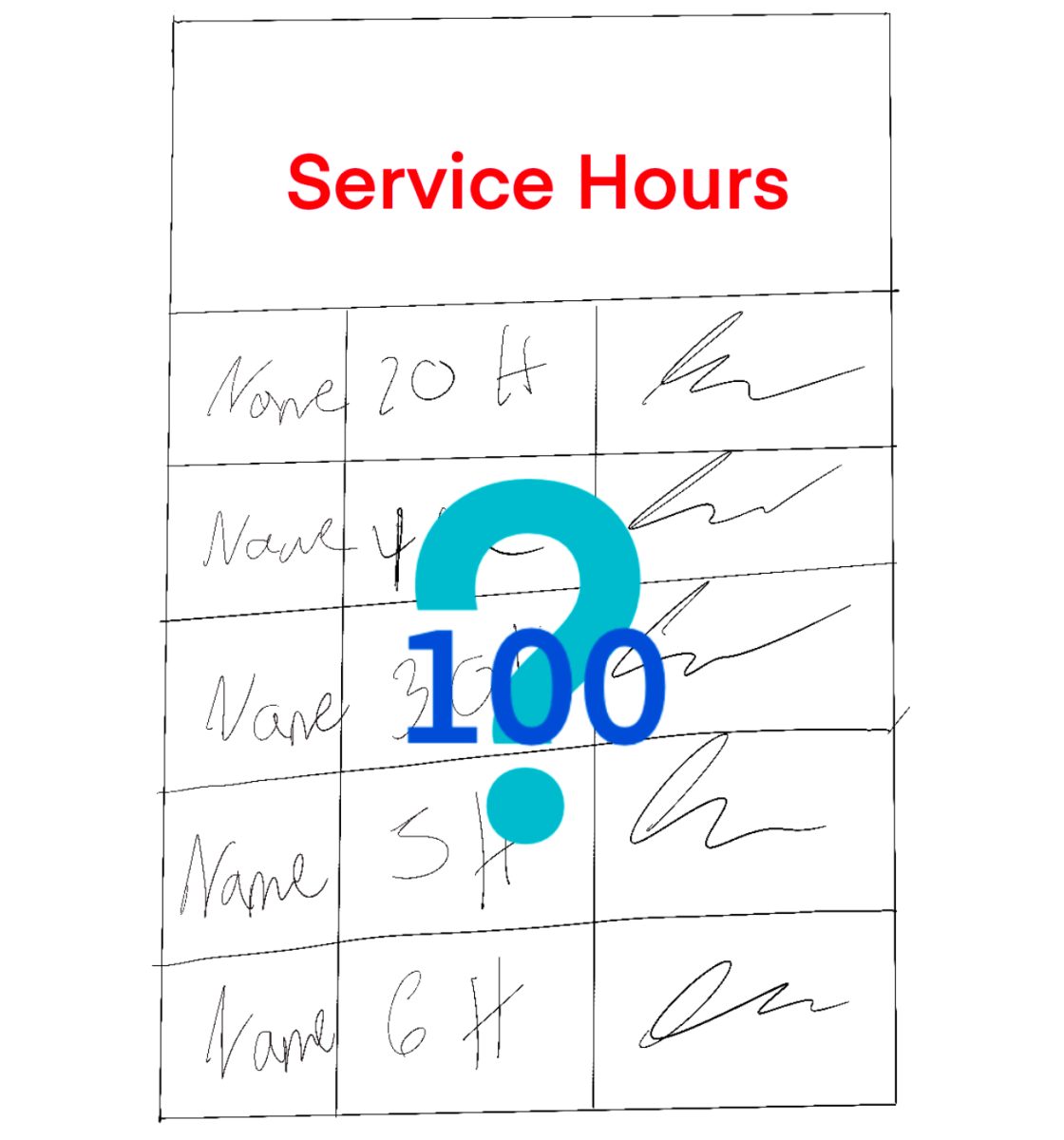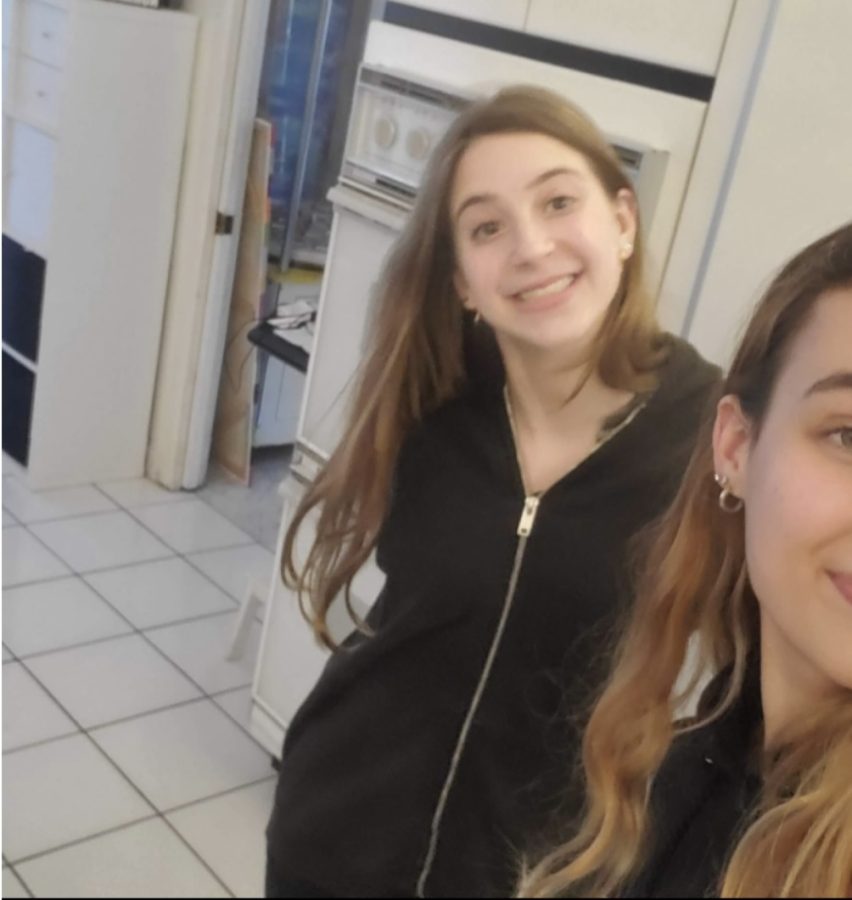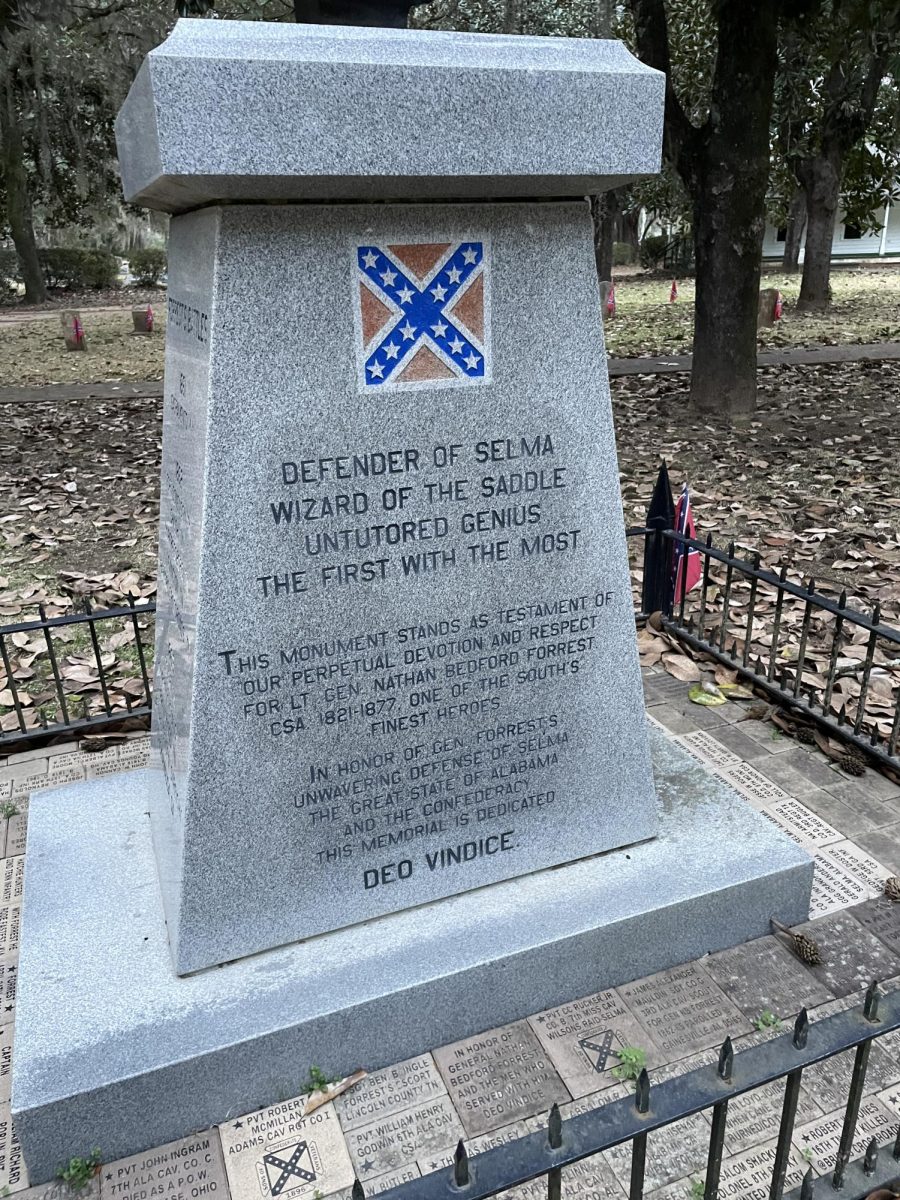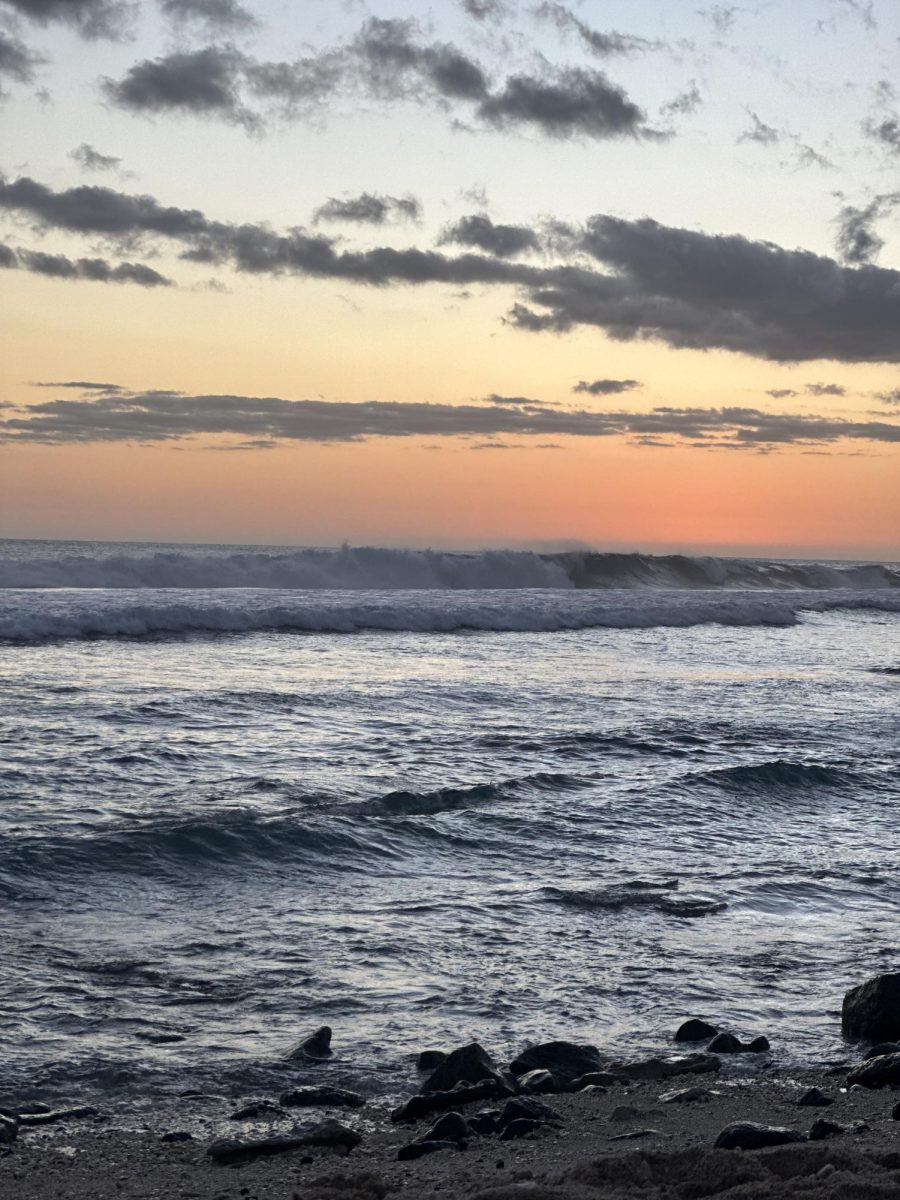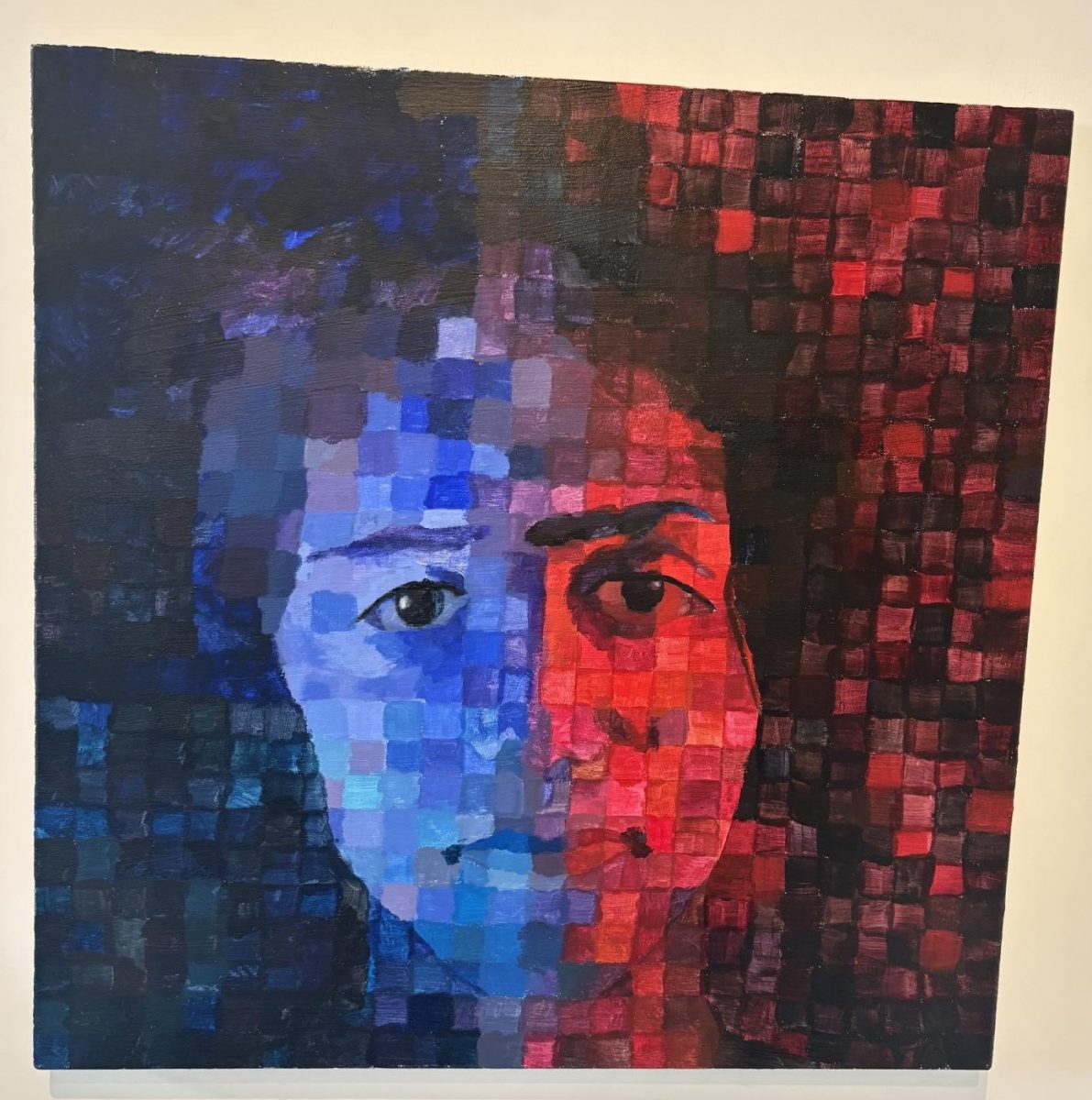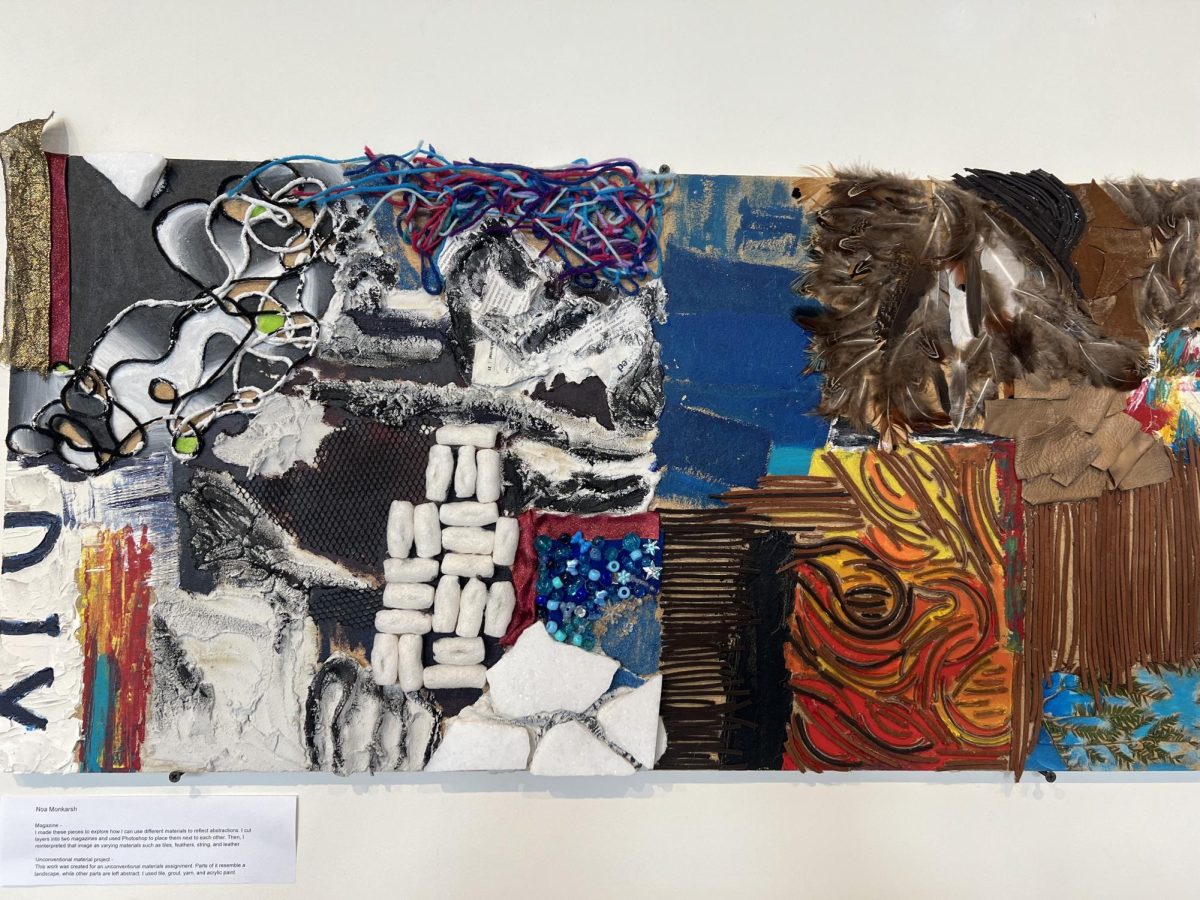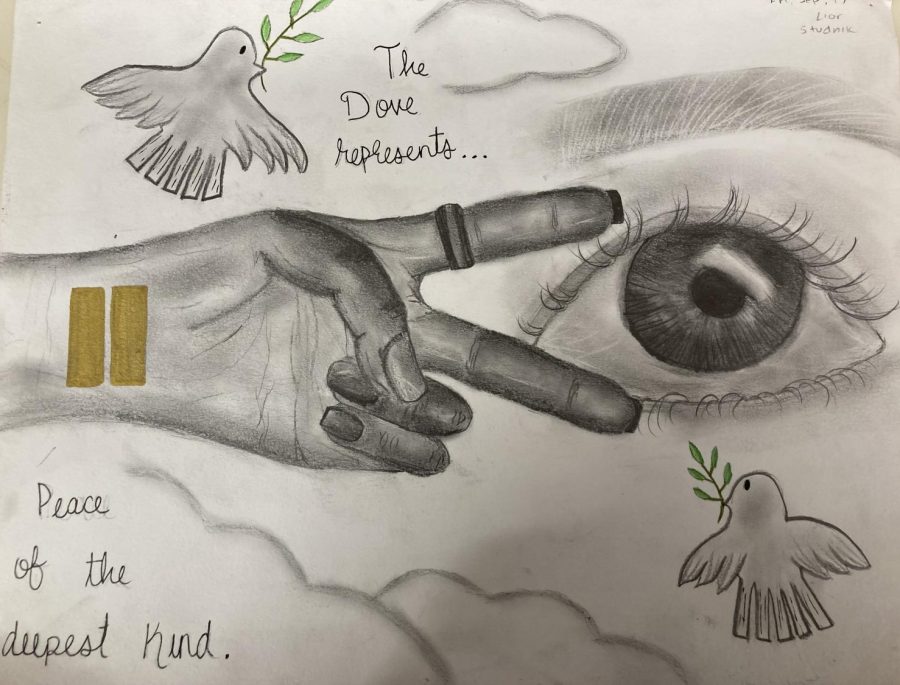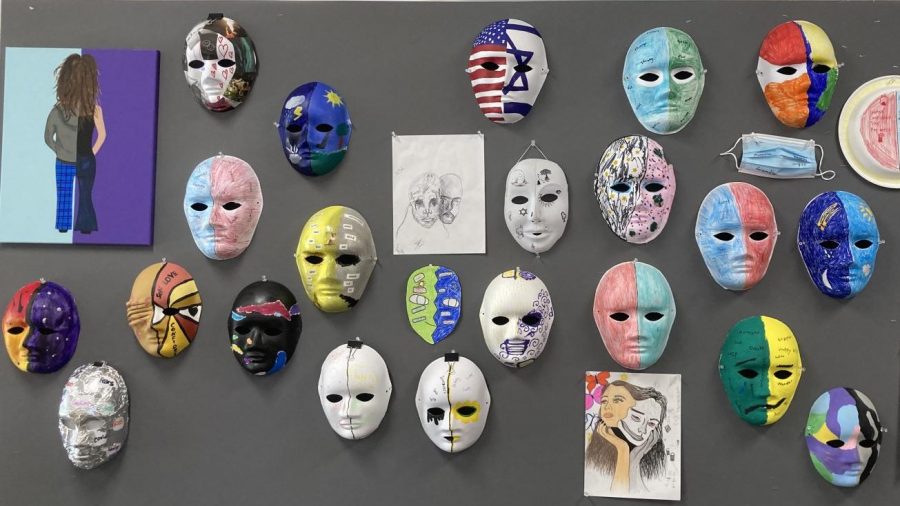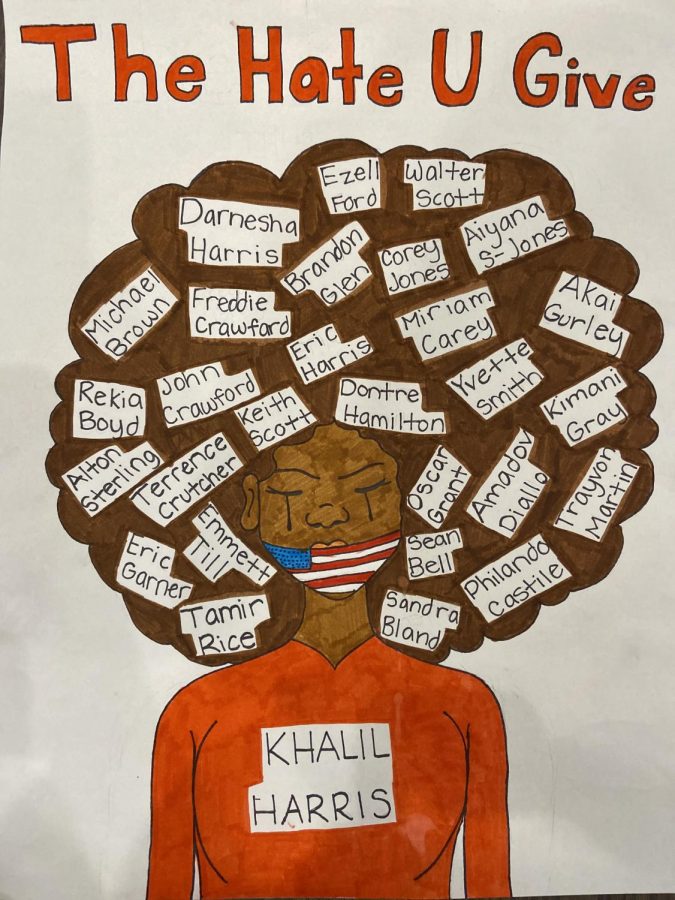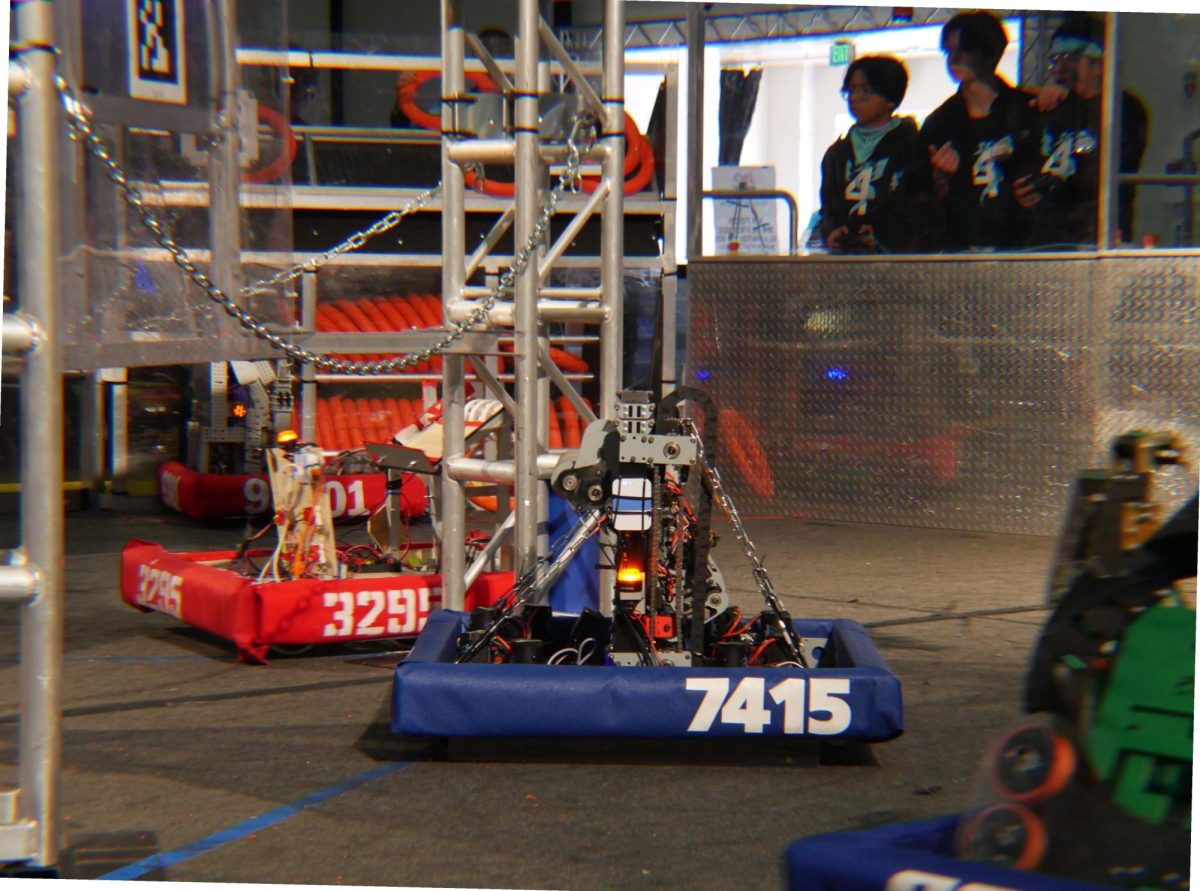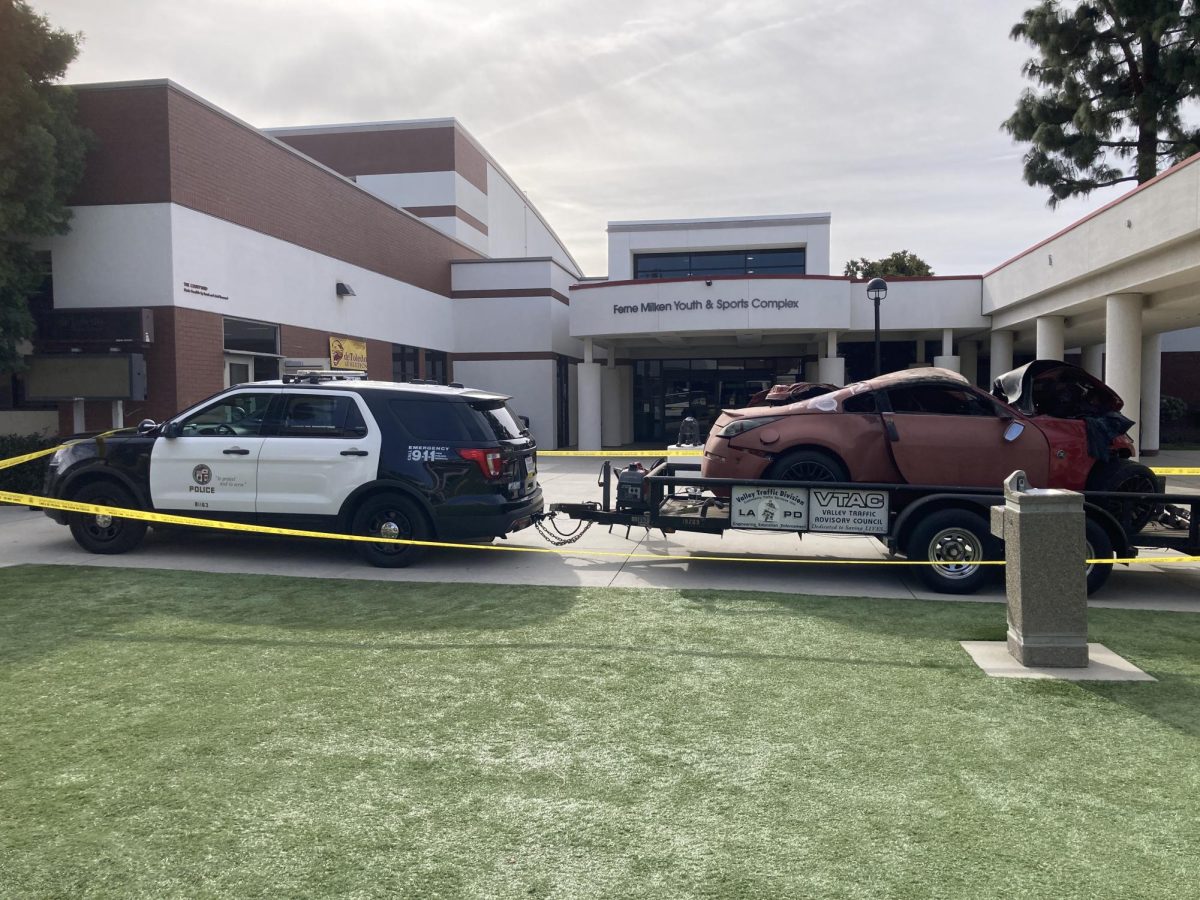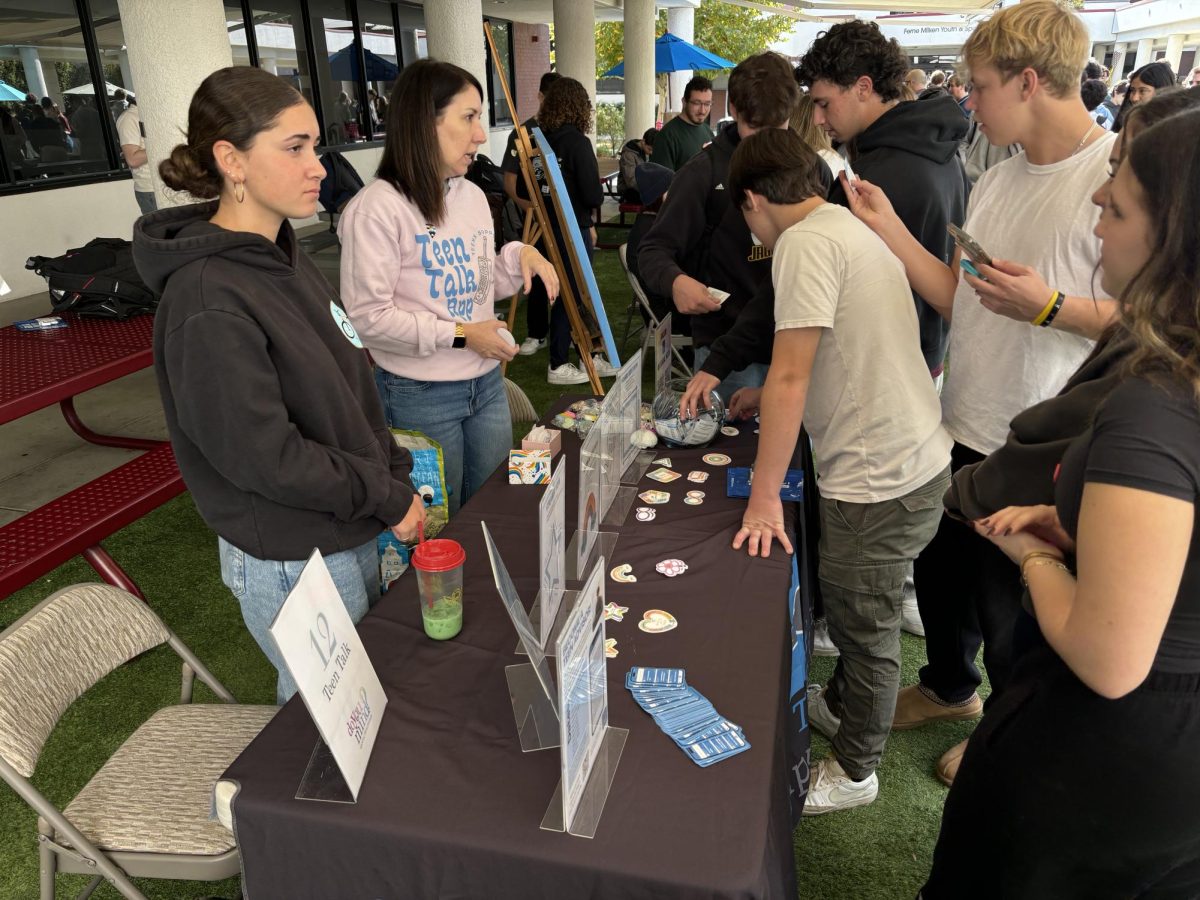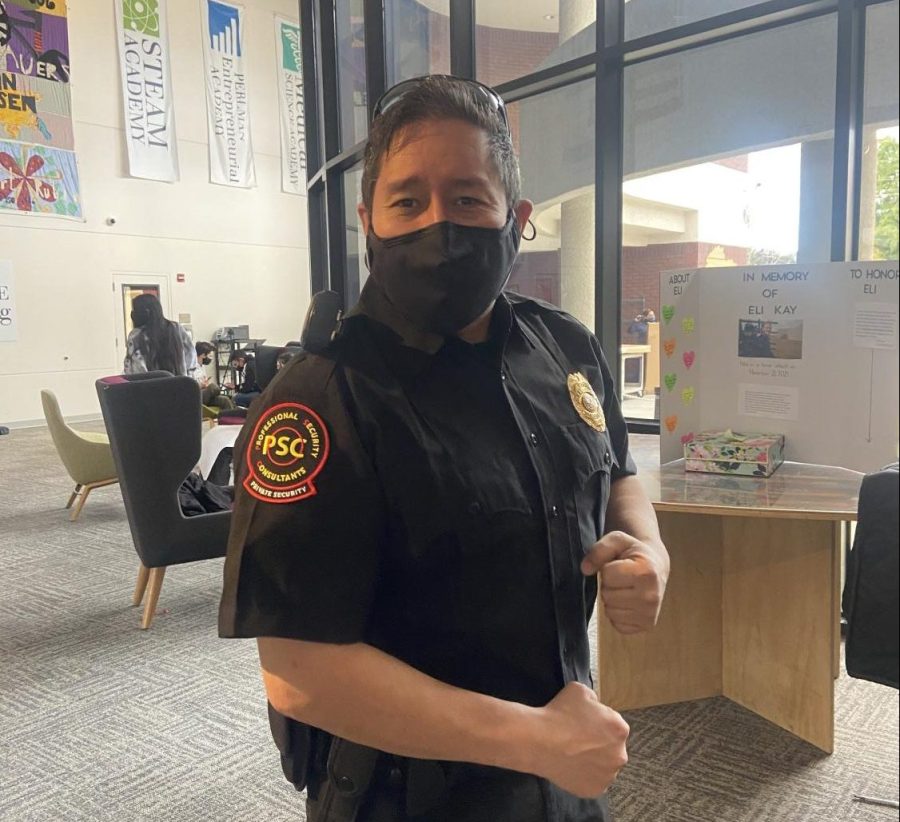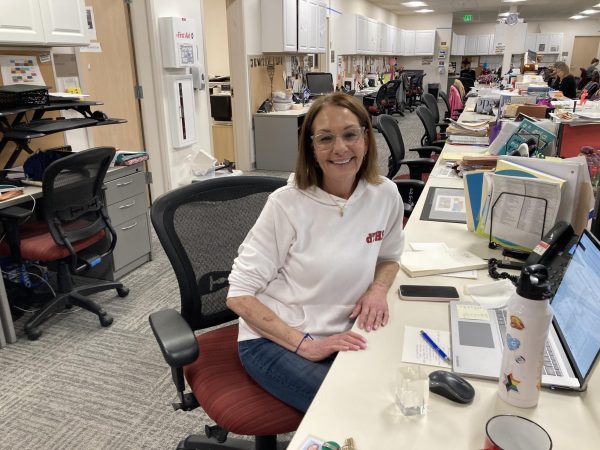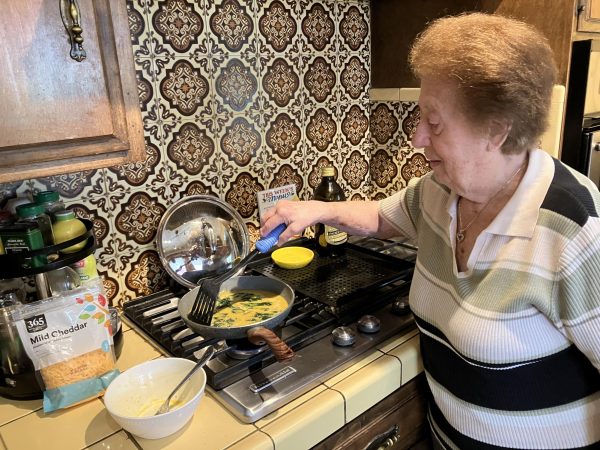From Serving in the Marines to Protecting Students’ Lives:
Security Guard Don DeArmon Stands Guard
Security guard Don DeArmon greets students as they enter the school.
Security guard Don DeArmon dreamed of being a CIA agent or spy, so his career path is understandable. California-born DeArmon grew up in Oklahoma and, after serving in the U.S. Marines, found himself working as a security guard after the 2008 recession. He started his job at de Toledo at the start of the pandemic. In addition to wanting to protect everyone on campus, DeArmon makes an impact on students in their day-to-day lives. Every morning, he greets students and faculty with a smile and hello.
Tell us about yourself and describe your background in brief.
I am in my late 40s. I was a Marine for six years, spent a lot of time overseas–some of the best times of my life. I grew up in Oklahoma, but I was born in California, and I moved to a lot of different states: New York, Florida, I lived in Texas [and] California; I lived in China for six months, so yeah, a lot of stuff.
What made you join the military?
A combination of things, I wanted to get out of Oklahoma in the middle of nowhere, and I wanted to travel. I always wanted to travel. When I was in the military, I traveled to like 45 different countries probably…and just a sense of patriotism and service is important in my life and part of my family.
What made you want to be in the security field?
I can give you the standard answer that, you know, I’m here to protect people and everything else, and I do have that streak, but really what happened was about 2008-2009, we had a recession and no jobs and I became a security guard, and I like it.
How long have you worked at de Toledo and how is your experience?
So, it has been a little strange. I started when the pandemic started, so when [they] closed down the school it was my first day. For a long time, there were no kids here. It was a little bit different, but now that this school year is fully started and everything else, it’s been great. The days are full of students that are here, and it’s better, so I like it.
How do you create an impact on the students?
How do I create an impact? By being professional and being happy and listening…there’s a few students that come around [who] have…complaints about school or their tests, and I listen. So you know, being an ear sometimes.
What’s your biggest inspiration in life?
I’d say my father. He was a great big man in my life; he died young. I was an adult, but he still died young, and to this day, I mean, he hasn’t been here for twenty years, but I think: What would my father say, would he approve of this? So, he’s an inspiration to me.
What was your childhood like?
I came from a military family. Until I was like eight years old, I lived in California, and then we moved to Oklahoma, which is a lot more open–clean air, horses and cows, things like that. I was an Eagle Scout, did a lot of outdoor activities and stuff, a lot of patriotism, and America and all that kind of good stuff, flag-waving and everything else, and then I joined the military.
What was a big challenge that you had to overcome?
Like I said, joining the military was a big thing and the Marine Corps, so a big challenge was boot camp. A lot of people don’t go through that. It’s a life-changing thing that I came out of psychologically, physically, mentally stronger than when I went in. Not that I was a weak person or anything like that, but it reshapes you, so I know a lot of people will never face that stuff. There are challenges that you have in life that you have, and going to boot camp actually made me more able to do those things, ’cause I know that I can do anything. Once I did this, I knew I could do anything.
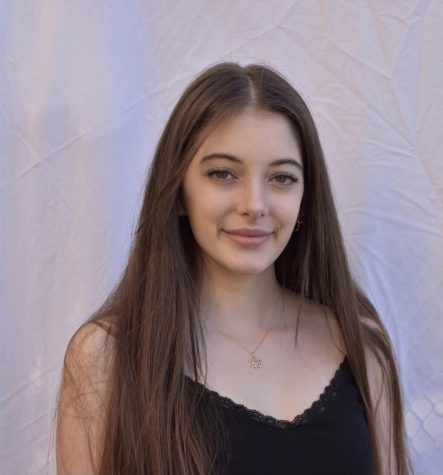
Hi, I’m Madelyn Siegel and I am so excited to be a part of journalism this year! I am interested in entertainment and pop culture, as well as broadcasting....
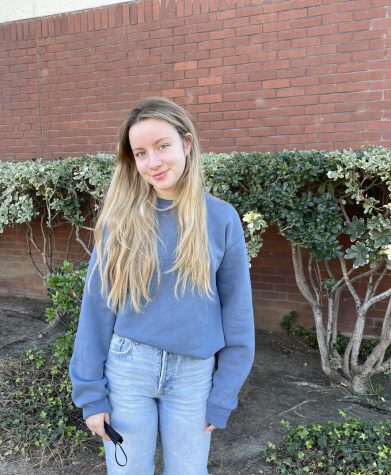
Alana Whiteman was a junior at de Toledo. When not at school, you can find her shopping or spending time with friends. She has a passion for writing about...

